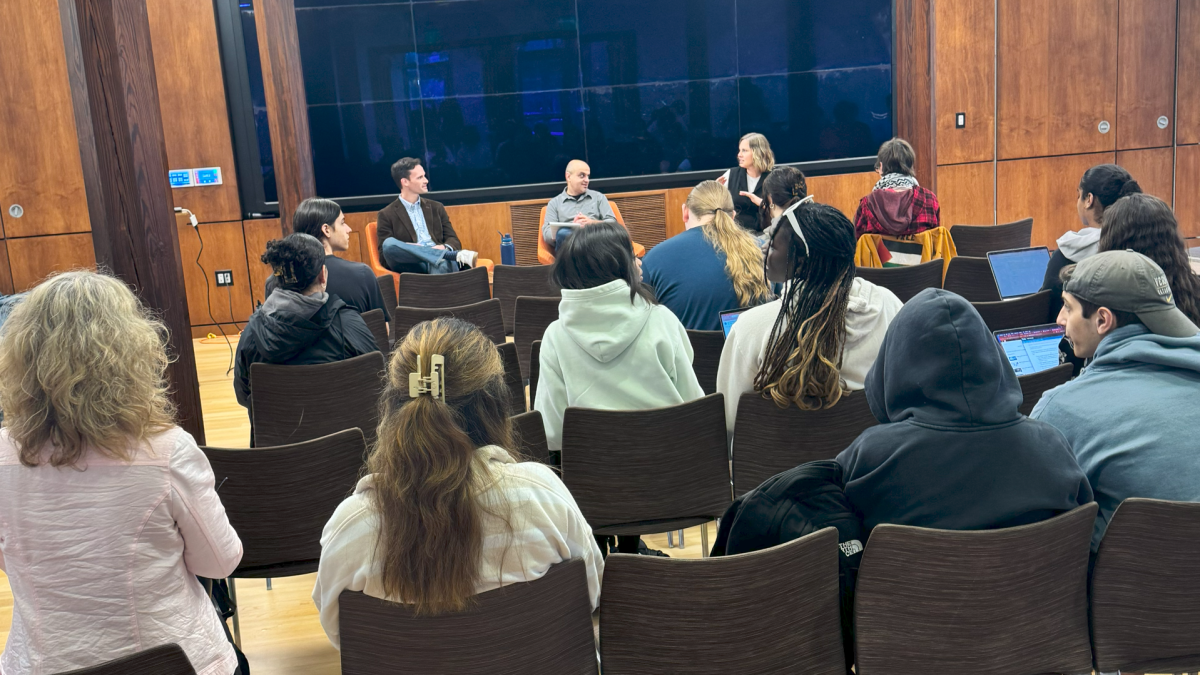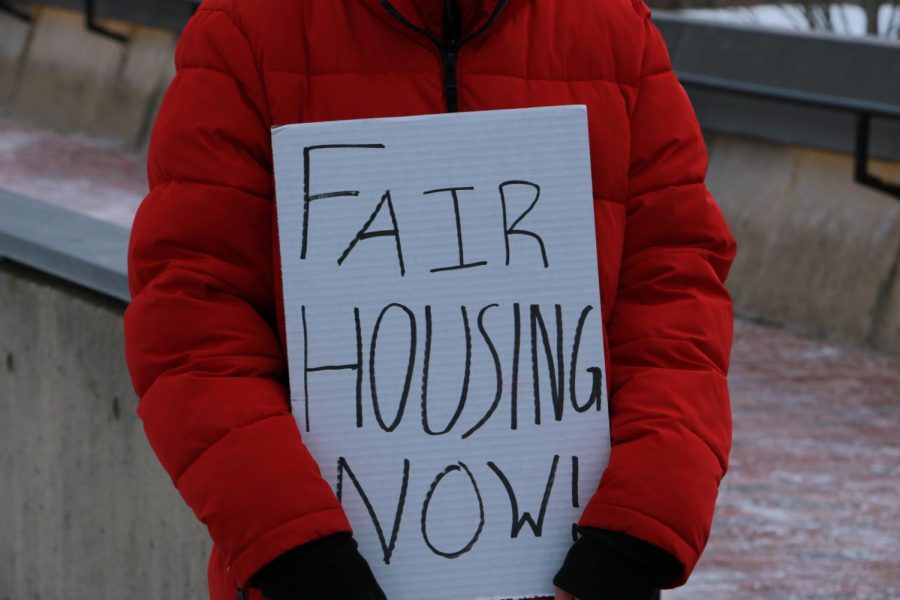On Thursday, September 26, the Migrant Working Group in collaboration with the UMass Poll held a panel discussion titled “Panel on Public Opinion, Current Events, and Migration.” The event was promoted as a part of the ongoing series of panels titled “Democracy in Troubled Times”, an initiative led by the College of Social and Behavioral Sciences.
Professor of Political Science Jesse Rhodes, Senior Lecturer II of Journalism Razvan Sibii, and Professor of Legal Studies and Political Science Rebecca Hamlin led the panel. Hamlin is also the Director of Legal Studies at UMass Amherst and co-leads the Migrant Working Group.
The panel was an opportunity for students and community members to probe immigration in America and its place in our political landscape. The event started with each panelist delivering their opening remarks, speaking to the nuances of immigration policy and how our discourse surrounding the issue has evolved in recent years.
Hamlin highlighted recent presidential elections, where candidates from both sides of the aisle have promised tough border measures. She also provided statistics about how much money has been spent on the US-Mexico border. Hamlin pointed to the contrasts between former President Trump’s and Vice-President Harris’ messaging on immigration. Trump has made the issue a centerpiece of his presidential campaign while Harris has let immigration take a back seat, focusing instead on reproductive rights. Recent polls indicate that American voters trust Trump over Harris on border security.
Hamlin claimed that there is “fear-mongering around the issue of immigration,” citing the unfounded claims by former president Trump that Haitian immigrants were eating pets in Springfield, Ohio. The baseless assertion, amplified by Trump during the presidential debate, has left the Ohio town in turmoil.
Later in the event, Rhodes provided polling statistics about American attitudes towards immigration, which he said were “very complex.”
“There are fundamental tensions and conflicts in public opinion about what they want from immigration policy,” Rhodes said. They want to deport 11 million people but also grant them citizenship.”
Rhodes cited statistics showing that Americans are of two minds when it comes to immigration. He said that when the public receives racist and xenophobic messages regarding immigration, they will see that as permission to share those racist and xenophobic attitudes. Similarly, when the public receives positive messages regarding immigration and how it benefits society, they will view immigration in a positive light.
Sibii specifically highlighted the US government’s handling of immigration, which he sees as incompetent.
“The United States is a country founded by immigrants and we all care about immigration,” Sibii said. “We talk about it, we argue about it and yet we do not have a secretary of immigration.”
Sibii went on to say that nobody with political power truly acts in good faith when it comes to reforming the US’s immigration policy. Rhodes later referenced Sibii’s statement when addressing an attendee’s question during the Q&A.
“One of the most structural difficulties to enacting immigration reform is that there is no political incentive to do it,” Rhodes said, after expressing how political parties do not receive credit for the policies they enact.
Serena Miller-Muro, a junior at UMass, plans on being an immigration attorney, which drew her to the event.
“I think that everything that was talked about here was so important and I feel like if nothing else, it just served as a space for people to share like-minded ideas,” Miller-Muro. “We’re being pounded with so much fear-mongering, so much prejudice.”
There will be a second part to this panel in the Great Hall of the Old Chapel on Nov. 14 at 4 PM.







